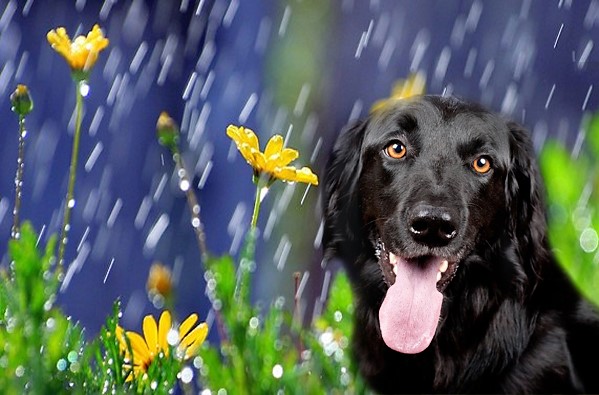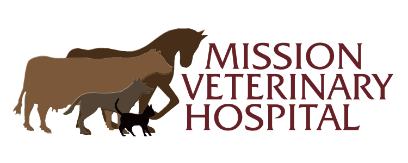April showers bring May flowers but the wet conditions of Spring can also bring an increased risk of developing an infection called Leptospirosis. Leptospirosis is a bacterial infection which can spread throughout the entire body – reproducing in the liver, kidneys, nervous system, spleen, eyes and the reproductive tract. Dogs are the companion animals that are the most commonly infected – cats can be infected but for the most part they seem to have a natural resistance.
Leptospirosis is prevalent in rural, suburban and urbanized areas and the incidence seems to be increasing. The bacterial infection can be found in most animals including livestock (cattle, pigs and sheep) and wildlife (rats, mice, opossums, deer, raccoons and skunk). The bacteria pass into the urine of these animals and into water sources and can find their way into wet or moist soil, puddles , ponds and lakes. Your dog can become infected by drinking, swimming in, or walking through contaminated water. They can also become exposed and infected with the bacteria by rodents who can contaminate bedding or sources of food. Bacteria can enter the blood through the mouth, eyes or nose and through a cut in the skin. Hunting dogs, dogs that live near wooded area, dogs that live close to farms where pastures are irrigated and dogs that spend time in kennels that have rodent problems can be at increased risk however any dog that goes outside can come in contact with Leptospirosis. Pets that live in a city environment can have increased contact with rodents and rodent urine so are also more susceptible. Infections are most common in Summer or Fall but can occur any time of the year where there is excessive moisture and conditions are above freezing.
Infected dogs often present with a history of not wanting to eat, lethargy, increased thirst and urination, vomiting, diarrhea, or weight loss. Animals can have a fever, muscle aches and weakness. If your dog is sick please take them to your veterinarian right away so that your veterinarian can start them on antibiotics and fluid therapy in an effort to prevent them from developing liver and kidney failure. You can become infected from your dog through exposure to infected urine and or vomit so be sure to use proper hygiene.
Fortunately you can help protect your dog from Leptospirosis by vaccinating it with the Lepto 4 way vaccine. All dogs that spend any time outside should be vaccinated to prevent Leptospirosis. You can also help prevent this bacteria by using caution when swimming in lakes and ponds where there is stagnant water and get rid of any areas of standing, stagnant water on your property. Be sure to check out boarding facilities prior to boarding your dog and make sure that they are free of any signs of rodents or their droppings. By considering all possible means of protection we can help reverse the increasing incidence of this serious bacterial infection that is a danger to both you and your dog.
Call Mission Veterinary Hospital for more information on protecting your dog from Leptosporosis.
Reference: Karen VanKirk
